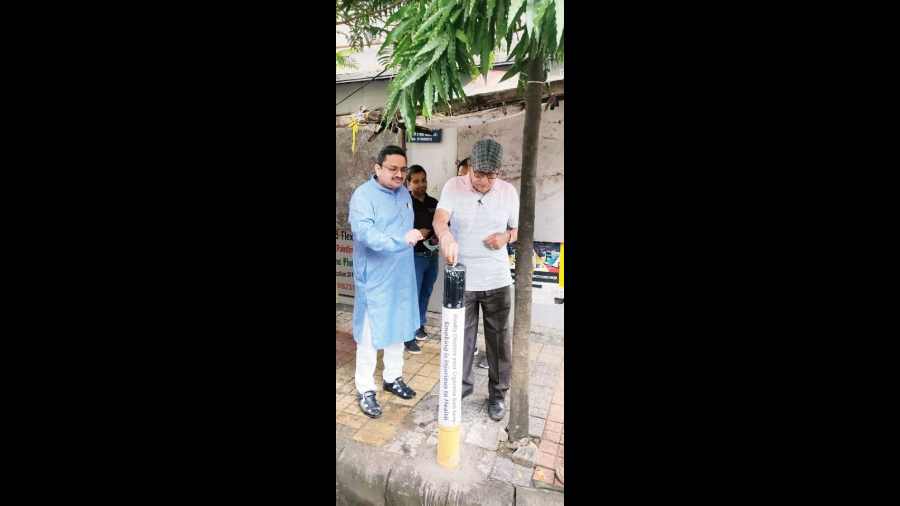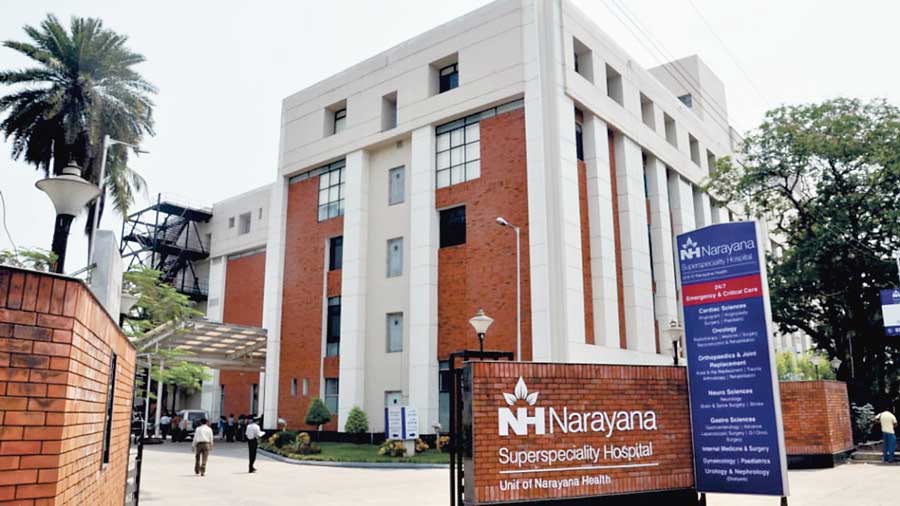Smokers around CA Market or City Centre may now stub out their cigarettes and dump them in eco-friendly waste bins that are also shaped like cigarette sticks.
Contrary to popular belief, cigarette butts aren’t made of cotton but cellulose acetate — a kind of plastic — that is a curse for the landfill or waterbody it eventually ends up in. But these dedicated dustbins will make it possible to segregate the plastic from the butt and recycle it.
These sleek bins are the initiative of the local ward co-ordinator Rajesh Chirimar and Add My Bin, a company that has installed and maintains 400 regular dustbins around the township.
“The cigarette bins have been sitting ready for a while but we weren’t sure how the public would react to them,” says Chirimar. “But then I read an article published in The Telegraph Salt Lake about an environmentalist collecting 10,000 cigarette butts in 24 hours (‘Butt responsibly’, published September 10). The article received great response from residents and we decided to implement our plan immediately.”
The team has put up 17 bins in the ward — around CA Market, near Vidyasagar Niketan, PNB, Goutam’s restaurant, the DB Block-City Centre junction and at other tea and paan shops where people tend to smoke.
The 3.5ft high bins are painted yellow at the bottom, white in the middle and black on top, like cigarettes. They are also labelled with instructions and other messages.
The top of the bin is bowl-shaped and made of fibreglass reinforced plastic to allow smokers to stub the butts out safely before dumping. The bins have tiny holes so people throw in only cigarettes and not other items. “The bins have a capacity of 2,000 butts and will be cleared out as and when they fill up,” says Joy Pansari, co-founder of Add My Bin.
Add My Bin is a service through which they have installed 400 regular dustbins on Salt Lake streets. They clear them at their own cost and earn revenue through ad placements on the bins. “Cigarette disposal is now a global talking point and since we had an existing infrastructure in Salt Lake, we wanted to start off the project here,” says Pansari. “We approached Rajeshji and he welcomed the idea.”
Chirimar, an animal lover, was moved by the thought that proper disposal of butts would save birds and fish. “Birds mistakenly eat up cigarette butts that people toss carelessly on roads and the plastic and chemicals inside harm them. The butts also make their way into storm water channels, ending up in canals and rivers, where fish eat them and suffer similar fates,” he said.
Once the bins are emptied out, Pansari says local women will be roped in to segregate the contents of the butts. “The filter paper in the butt can be burnt as mosquito repellents, the tar can be processed as fertiliser and the cellulose acetone can be recycled by the soft toy industry,” he says.
Chirimar is categorical when he says the bins are not meant to promote smoking. “The bins are labelled with anti-smoking messages and I am, in fact, keen to enforce laws that ban smoking and selling of tobacco near educational institutes in my ward. For this, I will require help from the police and educational intuitions once they re-open.”
Pansari says response has been positive and that they are getting enquiries from other wards of Salt Lake and south Calcutta too.
“I didn’t know about the environmental impact of these bins but could make out from their design that they are meant for butts. It’s a great idea and I shall certainly continue to use them,” says Prantik Basu, who is attached with a car accessories showroom near City Centre, outside which a cigarette bin has been installed.

